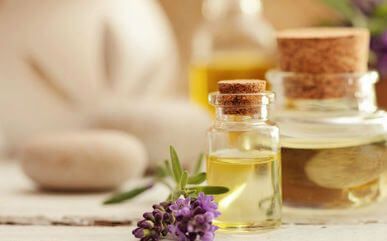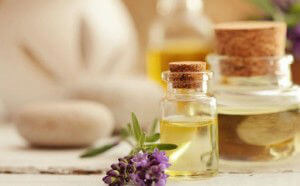
Stress is a part of life, and some amount of stress is healthy, and essential. However, when we let stress overtake us, our health can begin to deteriorate.
According to Janice Kiecolt-Glaser of Ohio State University, stress can wear on our immune systems, because it inherently creates its own immune response. She explains that stress causes the body to release pro-inflammatory cytokines, which are immune factors that trigger the body’s response against an infection.
In the case of chronic stress, cytokines are continuously produced for extended periods of time, which can lead to a diminished ability to fight infection and heal wounds by the immune system, as well as chronic inflammation. Chronic inflammation has been linked to an increased risk of osteoporosis, type 2 diabetes, heart disease and autoimmune diseases.
One natural and soothing way to alleviate stress is to harness the power of essential oils. Essential oils provide the healing properties of the plants they are extracted from, in a highly concentrated form. They can be applied to pressure points, used in therapeutic massage, and for aromatherapy.
The science behind aromatherapy is simple. There are 50 million smell receptors inside the nasal cavity, which connect to the limbic system of the brain, the area that governs emotions, memory and sexual arousal. The aromas of essential oils directly stimulate the limbic system.
Five of the best essential oils to use to combat stress are:
Lavender
Lavender is an extremely versatile oil, said to be able to provide balance to any personality type. It has relaxing and stabilizing properties – both physical and emotional. A 1998 study found that lavender essential oil made volunteers more relaxed and more alert simultaneously.
In this study, EEG scans were taken after the subjects inhaled the aroma of lavender oil, and the patterns researchers read in their scans mimicked those of drowsiness. However, the subjects were able to solve mathematical problems faster and with more accuracy.
Lavender is one of the gentlest essential oils, and a couple of drops can be applied directly to pressure points, although you may want to combine it with a base oil, such as organic, cold pressed coconut oil, or massage over larger areas of the skin.
Orange
Several studies have linked orange and sweet orange essential oils to stress-relieving effects. A study performed at Mei University in Japan found that when patients who were taking antidepressants were given orange oil, they were able to significantly reduce the amount of antidepressants that they took.
Another study, performed in Brazil, tested the aromatherapeutic properties of sweet orange oil. Participants spent five minutes breathing either sweet orange essential oil, tea tree oil, or water, and were subsequently stress tested during scans of their vital signs. Those who had inhaled the sweet orange oil showed the least anxiety during the test, even after the test was over.
After applying orange essential oil to uncovered skin, avoid direct sunlight to these areas for 12 hours.
Roman Chamomile
Chamomile tea is a famous nerve-soother. In its essential oil form, benefits are more concentrated, and therefore more potent. Chamomile has calming properties and may help reduce stress and anxiety, and help you let go of negative emotions.
While both Roman and German chamomile essential oils are linked to calming nerves, Roman chamomile has stronger links to supporting optimal mental well being, including the reduction of paranoia, anxiety and anger.
Be sure to mix Roman chamomile essential oil with a base oil, as it can irritate the skin when undiluted.
Cedarwood
Cedarwood essential oil is known for possessing calming properties. It was traditionally used by Native Americans during ceremonies to communicate with the spirits. Cedarwood has been linked to stimulating the limbic system of the brain, as well as the pineal gland, which is responsible for the release of melatonin, the hormone which signals to your body that it is time to sleep.
Some clinical studies have found that cedarwood offered positive benefits to children suffering from ADD and ADHD.
If you are pregnant, be sure to consult a health professional before using cedarwood essential oil. For use on children, also see a health professional, just to be sure that the oil is safe for your child’s individual health.
Ylang Ylang
Ylang ylang essential oil has both calming and stimulating properties, and has traditionally been used as an aphrodisiac. It has been linked to balancing stress and anger levels. Ylang ylang’s aromatherapeutic properties have been associated with stimulating circulation and lowering blood pressure.
This essential oil may cause some skin sensitivity with repeated use, so make sure to mix only a few drops with a base oil before applying, to minimize this potential effect.
How to Use
First of all, be sure to use only therapeutic grade, 100 percent pure, organic essential oils. Many imposters exist, and contain little more than chemical fragrances.
 For topical application, add approximately three parts of a base oil, such as organic, cold pressed coconut oil, to one part essential oil. Rub the mixture between your palms, and apply to your wrists, temples and the back of your neck.
For topical application, add approximately three parts of a base oil, such as organic, cold pressed coconut oil, to one part essential oil. Rub the mixture between your palms, and apply to your wrists, temples and the back of your neck.
Lavender is an exception to the ‘mixing’ rule, as it is very gentle, and a couple of drops can be applied directly to pressure points.
These oils also work great in massage. Use an essential oil, combined with a base oil, for shoulder, neck, back and foot massage. Essential oils can also be combined, so feel free to experiment with a mixture that works best for you.
To enjoy the aromatherapy properties of these oils, they can be used in a diffuser, Or, after rubbing the mixture between your palms, bring your palms up to your face and take a few slow, deep breaths, letting the aromas enter your airways. Do this with your eyes closed, in a comfortable position, and envision your stress melting away.
Using the above-mentioned essential oils is highly beneficial – both topically and as aromatherapy – prior to meditation.
-The Alternative Daily
Sources:
http://www.scientificamerican.com/article.cfm?id=stress-dangers
http://www.naturalnews.com/040462_essential_oils_stress_relief_Frankincense.html
http://www.prevention.com/mind-body/emotional-health/scent-citrus-shown-reduce-stress
http://www.wellbeing.com.au/blog/15-essential-oils-for-stress-relief

